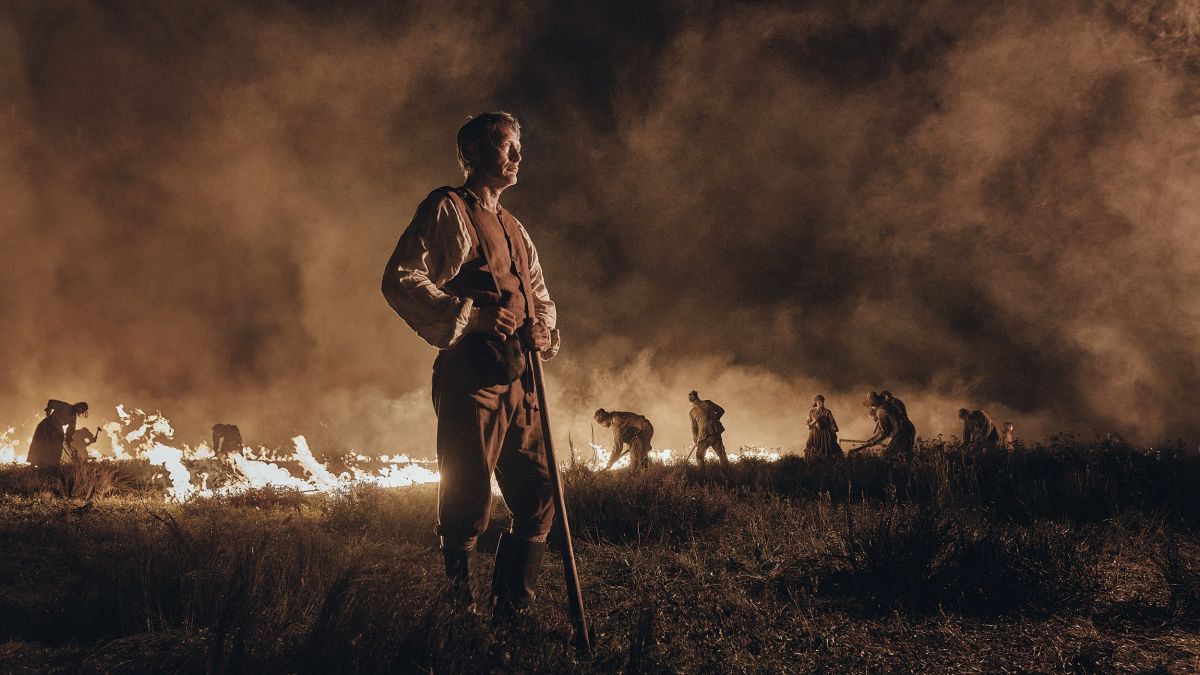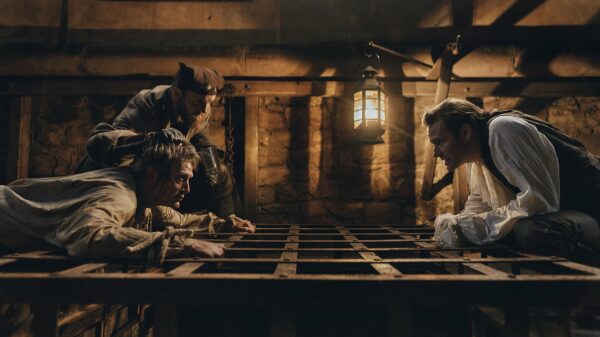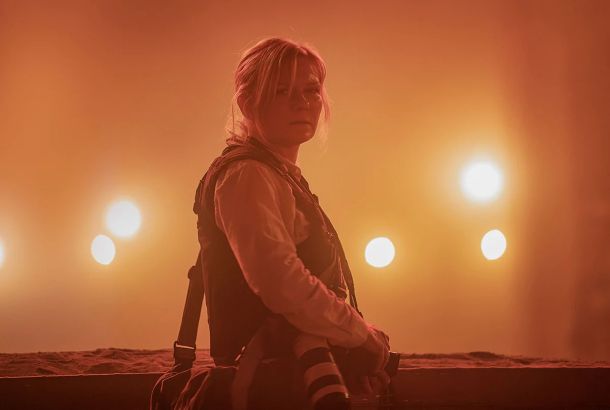The Promised Land review: Man on the moor
By Sid Johnson

“Denmark in the 18th Century. To increase tax revenues, the Danish kings try to domesticate and settle the vast moorland of the Jutland peninsular. But nature is unforgiving, the soil is poor, the countryside is infested with vagabonds, and for decades, all those who are sent out there, fail. The moorland cannot be farmed.”– The Promised Land.
So begins Nikolaj Arcel’s new film, The Promised Land, in which a man attempts to do just that. But not just any man: Ludvig Kahlen (Mads Mikkelson), a down-and-out ex-army captain with one thing on his mind – gaining a noble title. To get it, he promises the King of Denmark’s sceptical treasurers that he will tame the Jutish heath. They acquiesce if only to keep the King off their backs. It’s a Sisyphean task, and men with more money and better clothes than this destitute soldier have failed before him. But Kahlen has a secret weapon – a whole sack’s worth of them – up his sleeve…
Kahlen’s travels take him to frost-blasted frontier country, where it’s a struggle to dig up the earth, never mind grow anything in it – and that’s without mentioning the vagabonds, who’ll come for your supplies but would settle for your life. A local priest (Gustav Lindh) offers Kahlen help in the form of husband Johannes (Morten Hee Andersen) and wife Ann Barbara (Amanda Collin). They’ll work for nothing but food and board, at least once Kahlen realises that they’re serfs – slaves, essentially – on the run from a major landowner, one Frederik de Schinkel (Simon Bennebjerg), a magistrate with proclivities for rape, torture, and murder, as well as a nasty drinking habit.
As is made brutally clear, de Schinkel is the true savage of the story, more so than any scrabbling vagrant. This is a problem for Kahlen, as de Schinkel wishes to be rid of anyone seeking to work what he insists is ‘his land’. What’s more, the sadistic magistrate’s not-quite bride-to-be (Kristine Kujath Thorp) has apparently taken a shine to him. Ultimately, it’s the conflict between these two men that really propels the story forward. In each round, the stakes are escalated, but their back and forth does occasionally feel repetitive, and de Schinkel as a villain is somewhat one-dimensional. But that’s okay, not least because Kahlen offers so much as a protagonist.

For one, there’s his face. I mean it: those cold, angular features, the deep-set eyes, his wide, curled lips that so rarely curve into anything resembling a smile. Kahlen really does feel like a man who’s been through the wars – literally and figuratively – and came out cold to touch. He’s certainly no saint; as evidenced by his refusal to pay the runaways, he’s willing to take advantage of others for his own gain. He’s also stubborn, parsimonious, and single-minded to a fault. These flaws and others help to make him feel like a proper character and not some cut-out hero, especially as he strains against this hardened shell of his.
As the film draws on, however, Kahlen does begin to thaw. He treats the serf couple with something approaching decency, becomes friendlier with the priest, and forms a quasi-paternal bond with an obstinate Romani child (Melina Hagberg), whose darker skin marks her as an outcast, even amongst the vagrants. These relationships develop in generally satisfying and occasionally surprising ways, and all the performers do a fine job, even if Hagberg isn’t amazing.
The screenwriters, Arcel and Anders Thomas Jensen, also don’t shy away from confronting the bigoted realities of eighteenth-century living. Much like the violence that is peppered throughout the film, it doesn’t feel gratuitous and instead helps The Promised Land to feel like an uncomfortably well-realised portrayal of the past – which of course in many places is not even past.
There’s a great sense of restraint in Rasmus Videbæk’s cinematography, too. The camera moves sparingly and with grace, and when combined with the natural lighting and a surprisingly rich colour palette, as well as the convincingly lived-in production design, it gives scenes a painterly yet somehow grounded quality that suits both the film’s setting and style.
All good, then – great, even. That is until the third act lands with a snowy thud. I’ll try to be brief, as there’s still good stuff amongst the debris to avoid spoiling. A lot is resolved, but the execution is typically clumsy, in stark contrast to the first third. Other, more minor issues recur throughout the film, such as an aggravating tendency to have characters stare silently at one another during pivotal moments, which works when you’ve got a face like Mads Mikkelson’s but is otherwise underwhelming.
Whilst these problems were enough to mar my enjoyment of The Promised Land, they would not stop me from recommending it here. This is a well-executed historical drama, with a unique, interesting setting, and a gripping central performance.
3/5
The Promised Land is out now in cinemas







